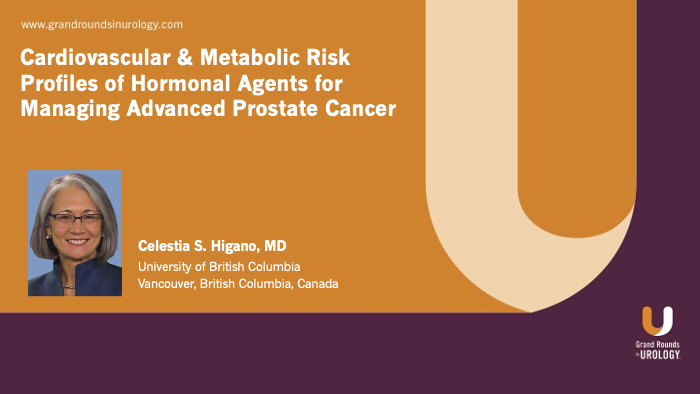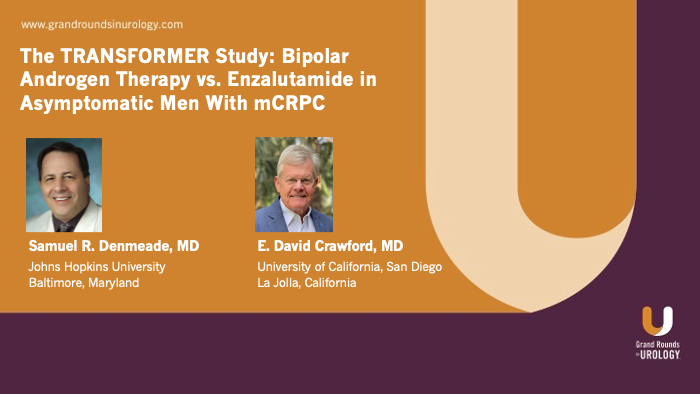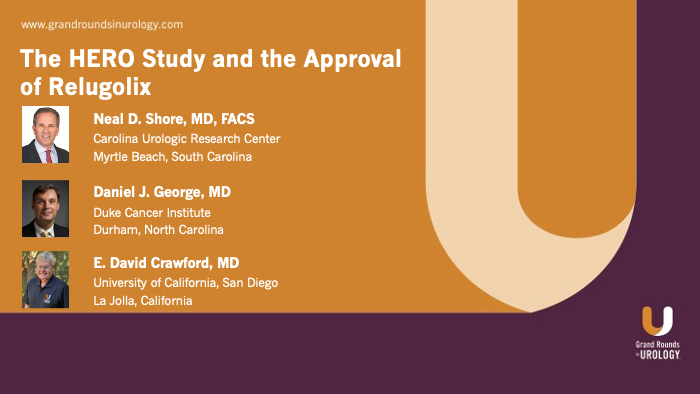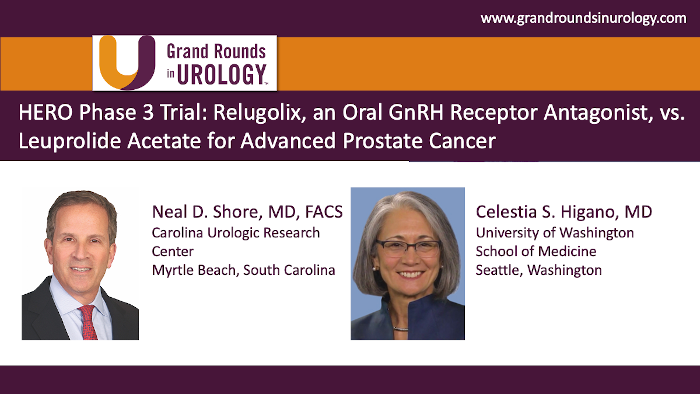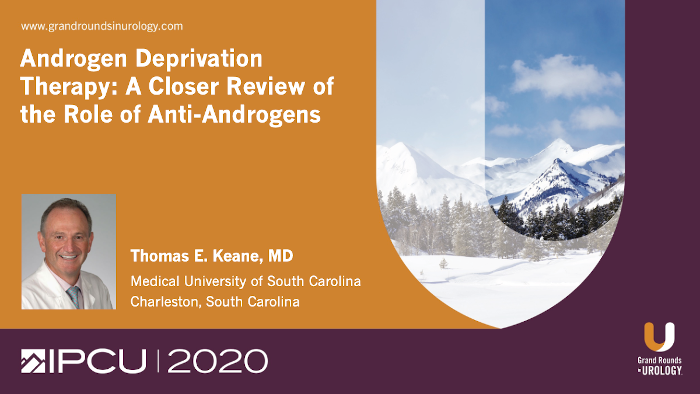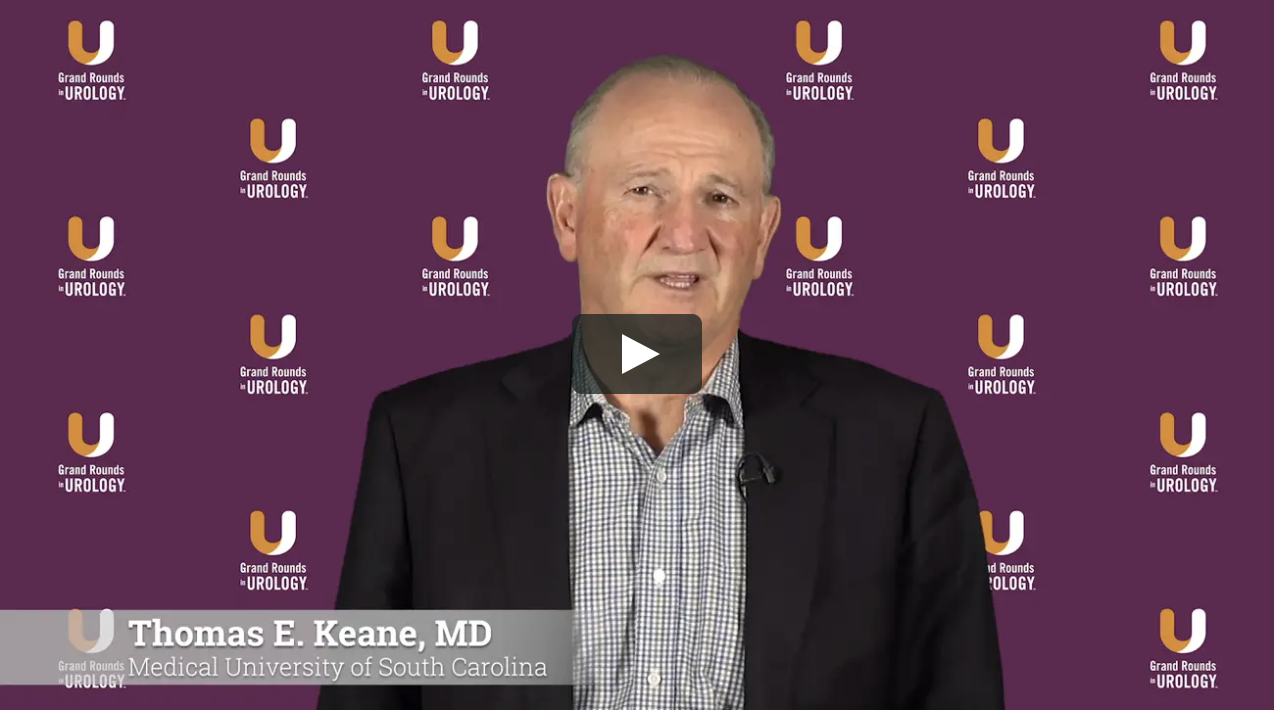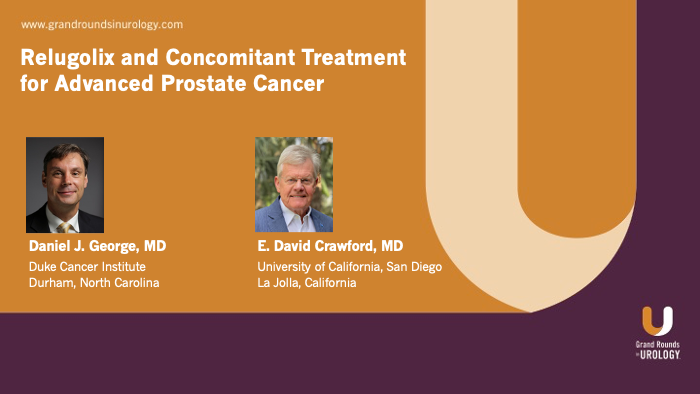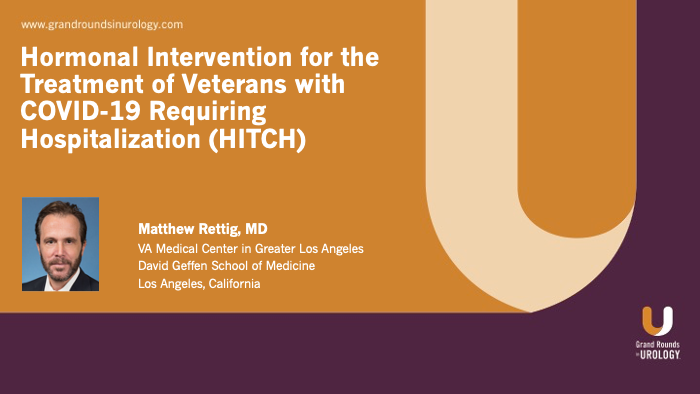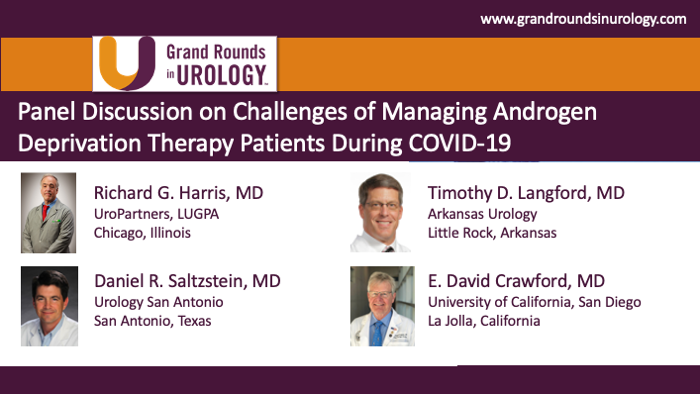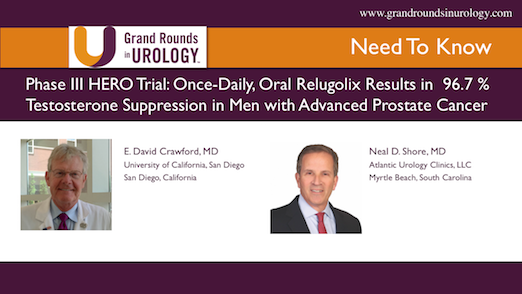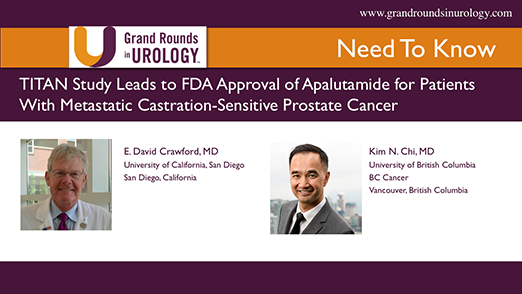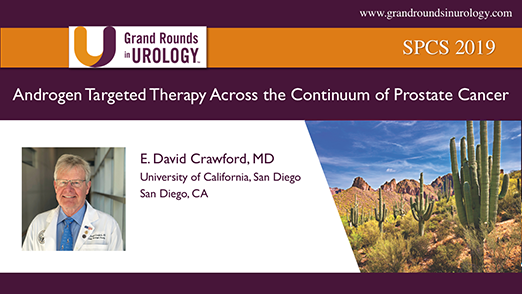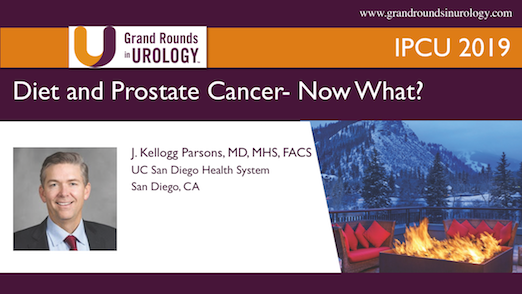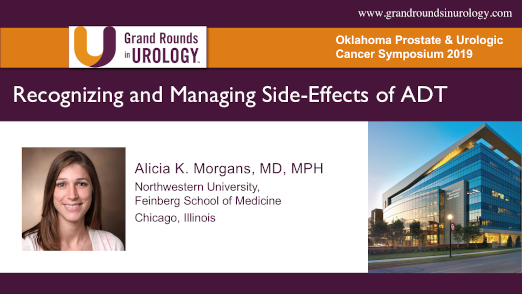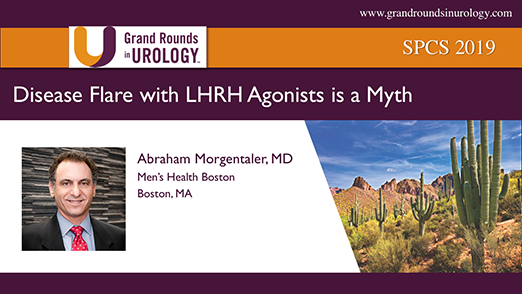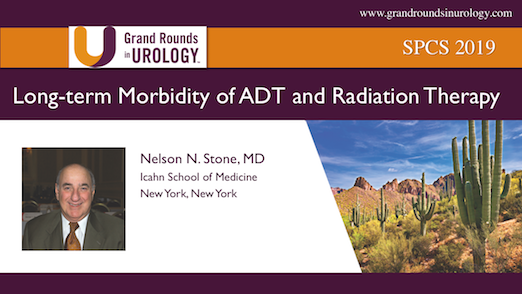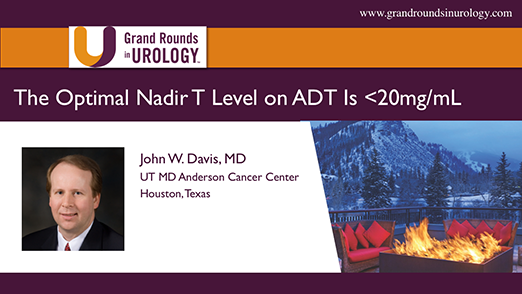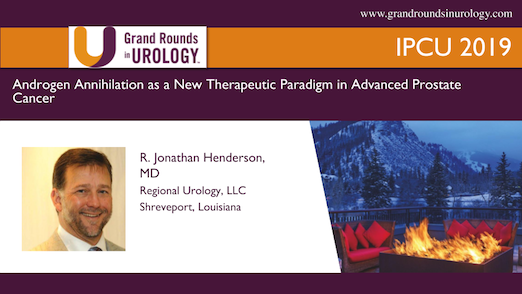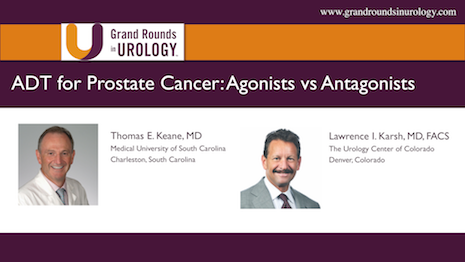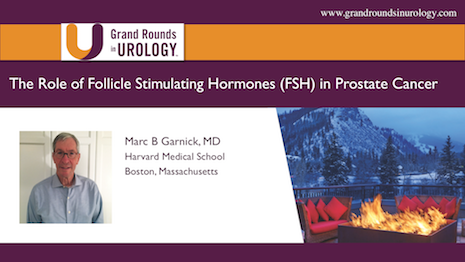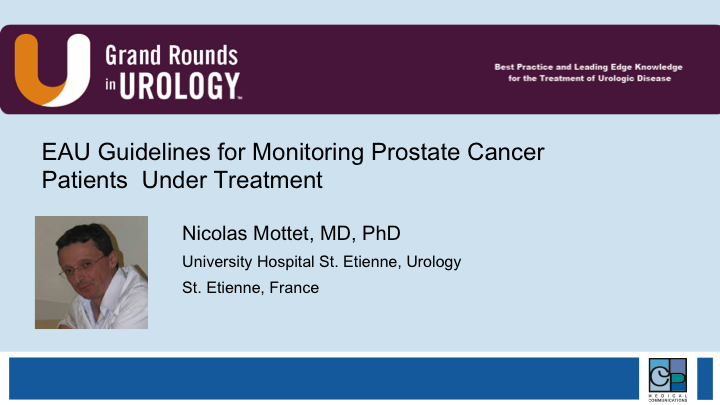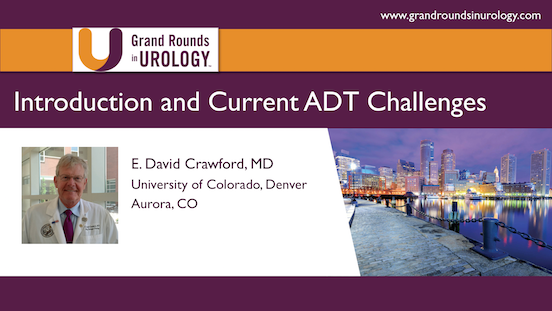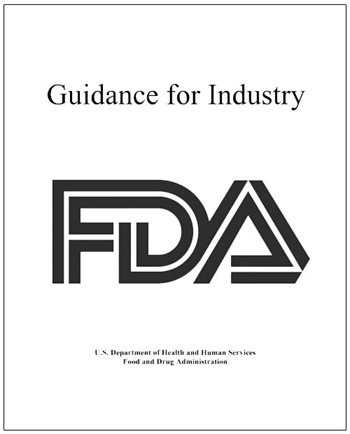Abraham Morgentaler, MD, FACS, reviews lectures from the first day of the 3rd annual meeting of the Androgen Society.
Alicia K. Morgans, MD, MPH, Associate Professor of Medicine in Hematology and Oncology at the Robert H. Lurie Comprehensive Cancer Center of Northwestern University, discusses the side effects of androgen deprivation therapy (ADT) and how urologists can mitigate them. She observes that up to 40% of non-metastatic prostate cancer patients are treated with ADT, and those patients tend to be older and have more comorbidities.
Abraham Morgentaler, MD, FACS, describes the phenomenon of testosterone flare following prostate cancer treatment with luteinizing hormone-releasing hormone (LHRH) agonists and argues that this flare does not necessarily cause disease progression. He also discusses the effects of testosterone therapy in patients with untreated prostate cancer.
Nelson N. Stone, MD, discusses long-term data about extended neoadjuvant hormone therapy following radiation therapy for high-risk prostate cancer patients. He observes the morbidity, mortality, and testosterone recovery rates of extended hormone therapy, especially in patients treated with hormone therapy for over 6 months.
John W. Davis, MD, debates the pros of using <20mg/mL as a threshold for the optimal nadir level of serum testosterone in prostate cancer patients treated with ADT.
R. Jonathan Henderson, MD, argues that the goal of ADT should be to achieve and maintain the lowest levels of T possible in prostate cancer patients. The FDA-recommended target low of 50 ng/dL originates from constraints of outdated technology, and multiple studies indicate that there is a benefit to patients when T-levels fall below 20 ng/dL.
Lawrence Karsh, MD, FACS, argues that agonists are effective, sustainable androgen deprivation therapy (ADT) options, and the belief that agonists present a high cardiovascular (CV) risk could be due to selection bias in trials. Conversely, Thomas Keane, MD, argues that patients treated with antagonists have lower CV risk and are more responsive to ADT than those treated with agonists.
Marc B. Garnick, MD, discusses whether or not follicle stimulating hormone (FSH) affects prostate cancer progression and cause adverse effects when used in combination with androgen deprivation therapy (ADT). He presents evidence for both the pro and con sides of this argument.
Dr. Nicolas Mottet presented “EAU Guidelines for Monitoring Prostate Cancer Patients Under Treatment” at the 6th Symposium on the Treatment of Prostate Cancer (STOP-6), which was held in Lisbon, Portugal between October 14th and 16th 2016.

